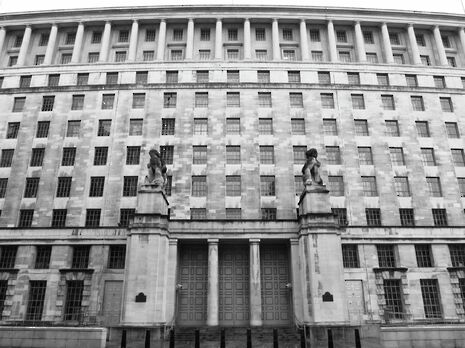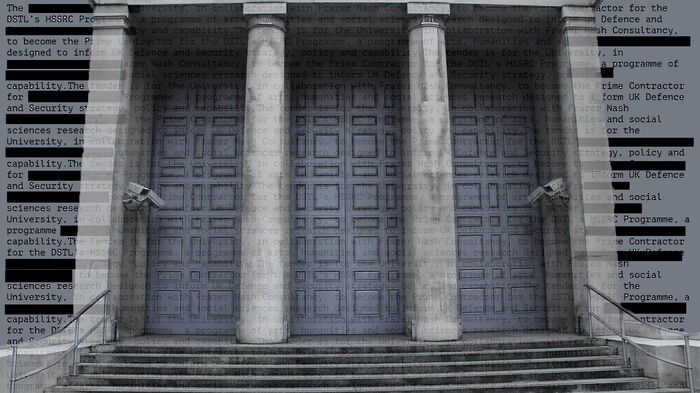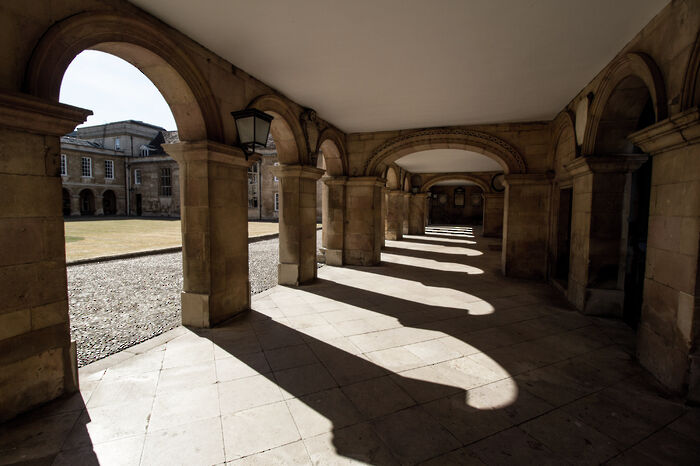Academics ‘deeply concerned’ about proposal to compete for military research programme
“We do not believe that the role of a public university is to involve staff in armed conflicts by acting as a supplier of contract research to the MoD,” wrote 40 academics in an open letter

Cambridge academics have launched an open letter to Vice-chancellor Stephen Toope and the director of the University’s Centre for Research in the Arts, Social Sciences and Humanities (CRASSH), Professor Steven Connor, detailing their concerns over Cambridge’s decision to apply to house a Ministry of Defence psychological research programme after it was revealed by Varsity in February.

Revealed: Cambridge’s proposal to compete for a Ministry of Defence psychological research programme
The letter has garnered 41 signatures at the time of writing.
The research programme called the Human Social Science Research Capability (HSSRC) programme, involved the “targeted manipulation of information in the virtual and physical domains to shape attitudes and beliefs in the cognitive domain,” according to a Ministry of Defence presentation in 2017.
Leaked documents showed Cambridge had entered the final stage of the bidding process to house the programme, becoming one of four final candidates, though a University spokesperson told Varsity it had dropped out at some point. They did not respond to multiple requests for comment on when and why.
“We do not believe that the role of a public university is to involve staff in armed conflicts by acting as a supplier of contract research to the MoD,” academics wrote in the open letter.
The HSSRC programme, they said, was particularly concerning because its results and methods would not be available for scrutiny by other academics.
They expressed particular concern that according to the leaked proposal, the University, if it had been selected to house the programme, was exploring the possibility of transforming the research centre into a “profit generating programme management consultancy” in the long term.
Academics wrote: “Undertaking government-funded contract research of this nature is troubling enough, but looking to profit from it is shocking. What kind of paying clients did you imagine would have wanted to buy services such as these?”
They also claimed the programme would “pose serious risks to the reputation and credibility of our research”.
The risks, they wrote, were particularly serious in light of the public debate over the work of a Cambridge neuroscientist, Dr Aleksandr Kogan, in the Cambridge Analytica scandal in March last year, involving methods of “information manipulation”.
Dr Kogan was placed at the centre of an international investigation by The New York Times, The Guardian/Observer and Channel 4, which alleges he played a prominent role in developing strategies to change voters’ behaviour while working for the controversial political consultancy firm Cambridge Analytica, through his academic research.
Whistleblower Christopher Wylie alleged that Dr Kogan’s social media algorithms had facilitated efforts by the firm Cambridge Analytica to influence the outcome of the 2016 United States presidential election which saw the election of Donald Trump.
When Cambridge’s proposal to enter the bid was first revealed, the national Campaign Against Arms Trade said, in a statement: “The University management has serious questions to answer about how this proposal came to be, and what other programmes it has applied for.”
At an open meeting with senior-pro-vice-chancellor for education, Graham Virgo, on Wednesday, he was questioned about the bid.
In response, he said: “It is entirely appropriate for researchers to decide that’s the research they want to do.” With regards to “autonomy” for research, he said, “as long as it’s legal, [it’s] something I’ll always argue for.”
Academics called on the University not to seek future funding under the HSSRC programme or similar ones. A University spokesperson declined to comment on whether they could make any such commitment.
In a statement on the open letter, a spokesperson for the University told Varsity: “Outside organisations talk to us all the time about collaboration, but we are not part of this tender process.”
 News / Cambridge academics sign open letter criticising research funding changes22 February 2026
News / Cambridge academics sign open letter criticising research funding changes22 February 2026 News / Supporters protest potential vet school closure22 February 2026
News / Supporters protest potential vet school closure22 February 2026 News / University Council rescinds University Centre membership20 February 2026
News / University Council rescinds University Centre membership20 February 2026 News / Hundreds of Cambridge academics demand vote on fate of vet course20 February 2026
News / Hundreds of Cambridge academics demand vote on fate of vet course20 February 2026 News / Union cancels event with Sri Lankan politician after Tamil societies express ‘profound outrage’20 February 2026
News / Union cancels event with Sri Lankan politician after Tamil societies express ‘profound outrage’20 February 2026











